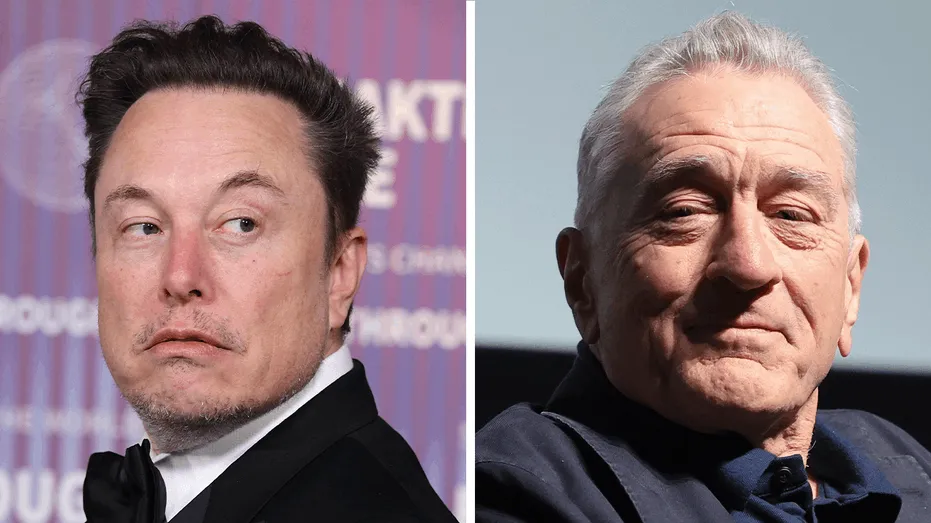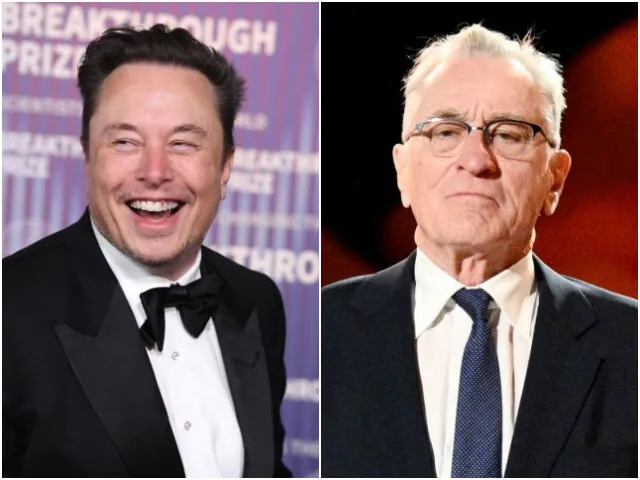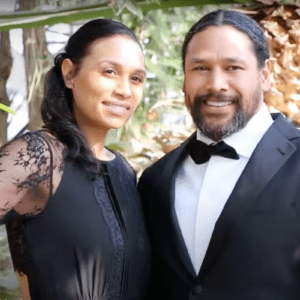
Elon Musk Calls Out Robert De Niro Publicly, “He’s a Creepy Woke Guy”
Elon Musk, the billionaire entrepreneur known for his bold and often controversial statements, recently made headlines once again for publicly calling out renowned actor Robert De Niro. In a tweet that quickly gained traction on social media, Musk referred to De Niro as a “creepy woke guy,” a comment that sparked widespread discussion and divided opinions. Musk, who has become increasingly vocal about his political views, has frequently used social media to share his thoughts on various celebrities, politicians, and cultural issues, often sparking debates.
The comment came after De Niro, a well-known critic of former President Donald Trump, made statements about the current state of American politics and his personal views on social issues. Musk, who has positioned himself as a more moderate or libertarian voice in recent years, took issue with what he saw as De Niro’s “woke” stance, a term used to describe individuals or ideologies that are seen as overly politically correct or focused on social justice issues. Musk’s criticism of De Niro was not the first time he has taken aim at Hollywood elites or individuals he perceives as being part of what he calls a “woke” culture.
Musk’s public comments on De Niro’s stance reflect a broader trend in his recent behavior on social media. Known for his unfiltered approach, Musk has become increasingly critical of the entertainment industry and what he perceives as the overreach of political correctness. This stance has earned him both praise and criticism, with some applauding him for speaking out against what they see as the stifling of free speech, while others accuse him of fostering division and contributing to the toxic culture of online discourse.
In contrast, Robert De Niro has been a vocal advocate for liberal political causes, particularly throughout the Trump presidency. He has used his platform to speak out against issues such as income inequality, climate change, and what he views as the erosion of American democratic values. De Niro’s activism is rooted in his long history of supporting progressive causes, and he has often used his celebrity status to amplify his political messages. For Musk, however, this type of outspoken advocacy appears to clash with his more individualistic and business-focused approach to public life.
The term “woke,” which Musk used in his comment, has become a polarizing label in recent years. For some, it represents a commitment to social justice and addressing systemic issues such as racism, gender inequality, and climate change. For others, however, it is seen as a form of overreach, where individuals or groups go too far in their attempts to be inclusive or politically correct, sometimes at the expense of free expression. Musk’s use of the term to describe De Niro suggests that he believes the actor’s progressive views go beyond reason and enter the realm of extremism.
This public clash between Musk and De Niro is part of a larger cultural divide in the United States, where political and social ideologies are often intensely polarized. Both Musk and De Niro are influential figures, but they come from very different worlds—Musk from the tech and business sphere, and De Niro from Hollywood. Their disagreement highlights the ongoing tension between Silicon Valley, which is often associated with libertarian or conservative ideals, and the entertainment industry, which leans heavily toward liberal values.
In conclusion, Elon Musk’s public criticism of Robert De Niro reflects the broader cultural and political divide that continues to shape public discourse today. Musk’s use of social media as a platform for his unfiltered opinions has made him a lightning rod for controversy, while De Niro’s consistent advocacy for progressive causes has earned him a loyal following among liberal audiences. The exchange between these two influential figures underscores the tensions within American society, where different cultural and political viewpoints often clash, especially in the public arena. Whether this public spat will have any lasting impact on either individual’s reputation remains to be seen, but it certainly adds another layer to the complex relationship between celebrity culture and political discourse.






